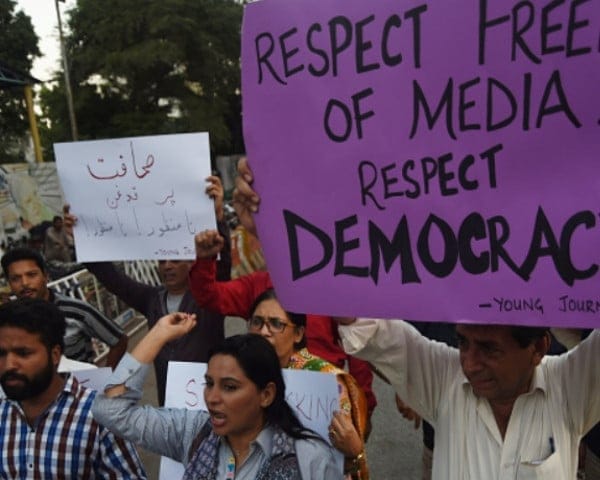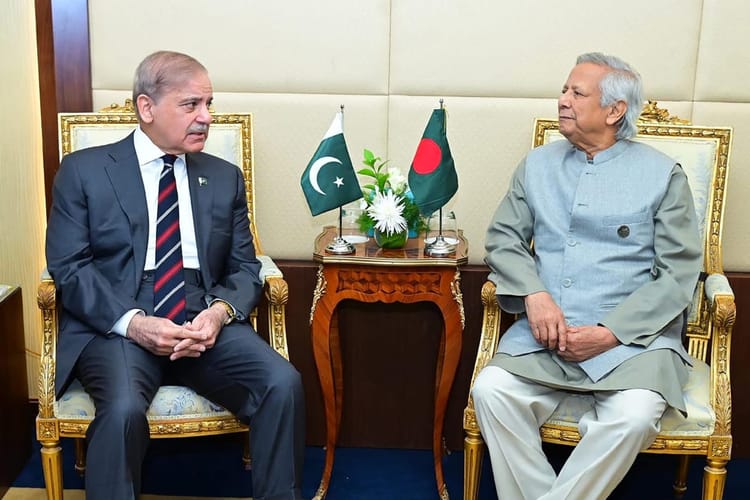PECA Amendments: Impact on Digital Rights and Freedom in Pakistan

The government has once again amended the controversial cybercrime law, the Prevention of Electronic Crimes Act (PECA). The new amendments were passed in the national assembly just one day ago. These changes further restrict online freedoms for digital users in the country. Digital rights activists have long warned of the bill’s potential misuse against human rights defenders, political opponents, and journalists. Despite opposition from several parliamentarians who walked out of the session, the government also passed the Digital Nation Pakistan Bill 2024, which creates a centralized digital identity for users, integrating economics and governance into a single system.
This move to regulate online spaces is not new, as the state has repeatedly introduced legislation that undermines users' rights and curtails free expression. What remains alarming is the lack of a consultative process and the swift, often overnight, passing of these contentious bills, leaving no room for debate.
The new amendments to PECA introduce Section 26(A), which criminalizes the intentional dissemination of fake news with penalties of up to three years imprisonment, a Rs2 million fine, or both. The bill also proposes the creation of a Social Media Protection and Regulatory Authority to oversee platforms through regulation, education, enlistment, and content blocking.

This authority would empower individuals to request the removal or blocking of false information, with decisions mandated within 24 hours. Social media platforms may be required to register with the authority, adhere to its conditions, and pay prescribed fees. The authority would also have the power to block content deemed anti-Pakistan, inciting violence, disrupting civic life, or spreading falsehoods.
Provisions further prohibit streaming material related to banned organizations, expunged parliamentary proceedings, or content targeting state institutions like the judiciary, armed forces, and parliament. Social media platforms must also maintain transparent systems for handling complaints about unlawful or offensive content. A Social Media Complaint Council and Social Media Protection Tribunal are proposed to handle grievances and resolve cases within 90 days.
Journalists and Activists Condemn PECA Amendments
Journalists' bodies and activists have fiercely criticized the amendments, calling them a direct assault on freedom of expression. The Joint Action Committee (JAC), representing groups like the Pakistan Federal Union of Journalists (PFUJ) and the All Pakistan Newspapers Society (APNS), condemned the lack of consultation with media stakeholders and demanded the immediate withdrawal of the amendments.
PFUJ leaders termed the amendments "undemocratic" and an attempt to muzzle the media, while the Karachi Press Club (KPC) called them a "threat to freedom of expression." KPC officials emphasized empowering the media to tackle fake news instead of silencing it. Similarly, the Karachi Union of Journalists (KUJ) decried the amendments as intolerable, urging their repeal.
Digital rights activists pointed out the vague and overly broad definitions of fake news in the bill, raising concerns about its potential misuse to suppress dissent. Activist Nighat Dad criticized the lack of transparency in drafting the amendments, describing them as “controversial” and raising questions about the ambiguous definition of fake news. Usama Khilji of Bolo Bhi argued the amendments worsen an already problematic law, empowering authorities to stifle criticism of state institutions while undermining due process by limiting appeals.

Government Defends the Amendments
Information Minister Attaullah Tarar defended the bill, claiming it only regulates digital media and does not affect working journalists registered with press clubs. He emphasized that the bill addresses issues like child pornography and deepfakes, while introducing oversight through new regulatory bodies. Tarar invited stakeholders for consultation, insisting the amendments aim to protect responsible journalism and enforce accountability on digital platforms.
Despite these assurances, concerns persist about the bill's future implications. Given its misuse in the past, the new amendments are expected to further curtail users’ rights online, creating an environment of increased censorship and impending threats to free expression.
Seerat Khan is the co-founder and Editor in Chief at Echoes Media as well as a digital rights activist working with the Digital Rights Foundation as the Programs Lead.






Member discussion